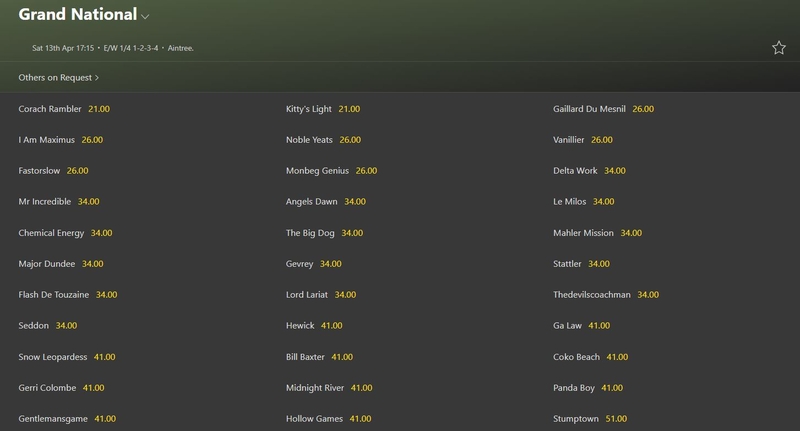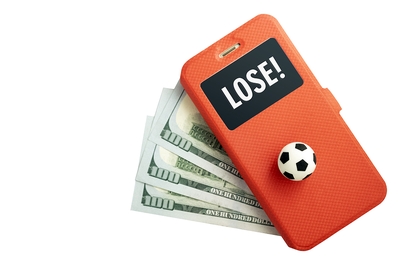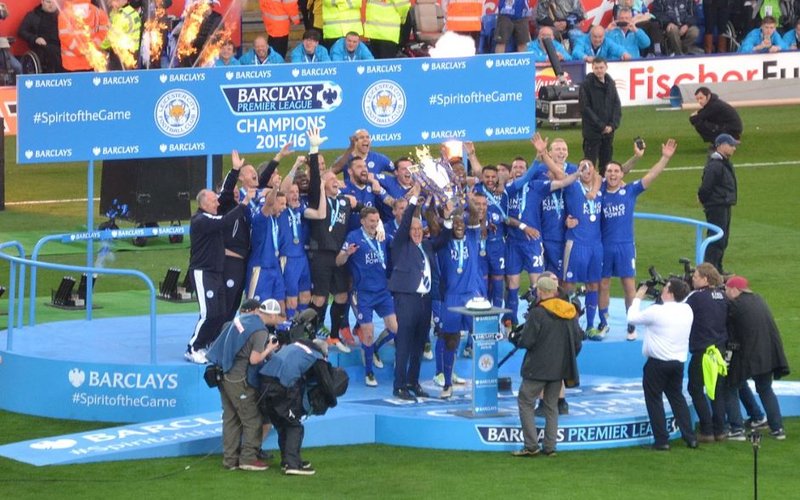Ambitious gamblers seeking large returns on their bets are often drawn to so-called ‘long shot’ options.
Outside betting circles, the term ‘long shot’ simply refers to something that is unlikely to succeed or be accurate, whether it be an effort or a guess. It carries a similar definition in the world of betting, as long shot bets are typically underdogs, priced at big odds, that few people expect to triumph.
There is a little more to it than this as we will soon discuss, however. Depending on the sporting event in question, a selection may have long odds but not be considered as a true long shot. Similarly, you could have a relatively short-priced option that many would refer to as a long shot. Although this may sound a little confusing, it will all make sense by the time you reach the end of this page.
How Do You Define a Long Shot?

Unfortunately, there is no fixed definition for a long shot in the world of betting. Generally, we would say it applies to a selection that is given a low chance of success – but there are some caveats to this, plus the issue of what constitutes a low chance of success and who decides.
Take for example the Grand National, one of the most famous horse races in the world. This marathon contest typically features 40 runners all gunning for success. Due to the sheer volume of horses involved, it is quite common to see the race favourite priced at odds of 7/1 or 8/1.
Now, these odds convert to an implied probability of 12.5% and 11.1% respectively, this being the likelihood of success according to the odds. An 11.1% or 12.5% chance of success falls well within the ‘unlikely’ category, but you will not find people calling the race favourite a long shot. If you were to, the term would apply to the whole field, making it rather meaningless.
If we were now to move over to the world of football though and there was a match involving Man City (priced at odds of 1/4) and Burnley (8/1) you would be completely right to refer to Burnley as long shots. Compared to City, the Clarets have a very low chance of success and the odds are stacked against them. But in theory they have just the same chance as an 8/1 favourite in the National, so it is easy to see why this issue can appear confusing.
What’s more, in fact, the odds could be even lower for a team for them still to be within long shot territory. Where punters draw the line varies but if Arsenal (5/6) were playing Aston Villa (7/2) few people would query you calling Villa a long shot or at least ‘a bit of a long shot’.
So, in many sports where it is one team or player versus another, the underdog can often be referred to as a long shot. There is a limit to this though. In a tennis match, if one player is available at (4/6) and the other at (11/10) calling the latter a long shot does not seem fitting. They have a 47.6% chance of success according to the odds, which is a considerable way from being improbable. While technically you could perhaps argue they are the long shot for this match, it does not fit with its common usage.
Where you draw the threshold for ‘long shot’ is ultimately up to you but in a market with just two or three betting options, many would say at least 3/1 or higher. For an event with lots of available options such as a horse race or a golf tournament, the threshold changes significantly.
Here you might say that any option in the bottom two-thirds of the betting is a long shot for example, although it can vary. If you were to read some Grand National betting tips focussing on a ‘long shot’ or ‘outsider’ option, we would expect these to be priced at a minimum of 20/1 and possibly even higher.
Is Betting On A Long Shot A Good Idea?

One thing that true long shots all have in common is that their chance of success is always less than half, so you are bound to lose more than you win. No matter if you pick a cricket team priced at 4/1 to win their upcoming T20 match, or a golfer available at 25/1 for the US Open, the odds are against you. However, just because the bookies believe that the person or team are very likely to lose does not mean that will be the case and it certainly does not make it a bad bet. The trick with long shot bets, as with all bets, is to find those offering good value.
Imagine for a moment that we were taking bets on the outcome of a dice roll. The chances of you guessing the correct number is 1 in 6 (16.666%) which equates to 5/1 odds. As the bookmaker though, we would add a little ‘house edge’ into the available odds so maybe we give you odds of 9/2 for guessing correctly. You are likely to think this is not very appealing so you will turn down the chance to gamble with us.
If, however, we offered you odds of 8/1 on picking the right dice number, you would be much more inclined to take part. In reality you still have a 1 in 6 chance of getting it right, meaning, of course, that on average you will lose 5 out of 6 bets. As such, it may take you a few efforts before you got a winner but if you bet enough times, a win overall would be probable. This example highlights that placing enough ‘good value’ bets, is the key to gaining success over the bookies. It is not about winning every time, or even most of the time, instead, it is choosing wagers that represent good value for money.
The only issue you have is figuring out which bets do offer this value; where the odds offered are bigger than what they really should be. With the dice example, we know the true probability is 1 in 6 but it is much harder to figure out the ‘true’ figure of a football team winning a match or horse winning a race.
Bookmakers generally do a very good job of doing this themselves but they are not perfect. You also have to factor in that the odds they offer fluctuate depending on what money is going where. If punters are putting all their money on the favourite for an upcoming boxing match, this will shorten the odds on them and increase the odds of the underdog.
Do Long Shots Usually Lose?
 As highlighted above, the key to good long shot betting is identifying good value but are long shot options typically priced well, or do you have to be extremely selective? This is not an easy question to answer as it would require some massive number-crunching and an extremely large sample size. It is possible to get some useful insight though.
As highlighted above, the key to good long shot betting is identifying good value but are long shot options typically priced well, or do you have to be extremely selective? This is not an easy question to answer as it would require some massive number-crunching and an extremely large sample size. It is possible to get some useful insight though.
For instance, according to FlatStats, horses priced 100/1 over a 10-year period had a 0.29% strike rate, producing a ROI of -71% and an A/E index figure of just 0.29. Without going into detail on what these figures mean exactly, let us just say that they are not good.
An article from Forbes also backs up this idea that long shot options generally represent poor value for money in horse racing. They looked at a large sample of track bets placed in California that found there was a huge dip in returns past the 10/1 mark. At the very longest odds, the average actual payout was less than 50% of the cost of the bets. So in other words, for every $10 bet on extreme long shots, the bookmakers paid less than $5 back.
Moving over to football and our own research, looking over a four-year period in the Premier League, we found that home wins, which typically have the shortest odds, provided the best value for money. Away wins, which have a substantially higher average price due to home-team advantage, performed much worse. Although our analysis did not focus purely on long shots specifically, it does support the idea that shorter odds tend to provide better value bets.
If you are looking at following a betting strategy that focuses on selecting long shots, which sport you bet on will have a big say on how you fare. While it could possibly be a viable option in some, in others you are far more likely to suffer losses by regularly picking the unfancied outsiders. Certainly in horse racing at least, evidence suggests that consistently going for options far down the market rarely forms a smart approach.
There are two main reasons why bookies tend to offer better value on favourites and, therefore, worse odds on long shots. First, most bets are accepted on those towards the head of the market, so competition between betting sites is fiercest here. Second, it is harder for punters to correctly assess the chances of options at longer odds. Therefore it is trickier for them to know if value is 33/1, 50/1 or 66/1. Moreover, punters at those odds tend to be less price sensitive – if you think a golfer will win you are generally just as happy to back them at 50/1 as you would be at 66/1.
Famous Long Shot Examples

Major long shot wins can happen across almost all sports and they certainly end up producing headlines when they occur in big events. Even at the very highest levels you can see truly unexpected results with unfancied options going on to shock the sporting world.
- Robin Soderling vs Rafa Nadal (48/1) – King of clay Rafa Nadal was enjoying a 31-game winning streak at Roland Garros before he suffered a wholly unexpected defeat to the big-serving Swede.
- Leicester win the Premier League (5000/1) – Having only just avoided relegation the previous season, you could get odds as large as 5000/1 for the Foxes to clinch their first ever top division title.
- Japan vs South Africa (80/1) – South Africa’s opening Pool B clash with Japan was expected to be a walk in the park for the tournament third-favourites. Things did not go according to plan though as they lost an enthralling encounter 34-32.
- Trevor Immelman wins the Masters (150/1) – Ranked 1,673 in the world at the time, Trevor Immelman was glad just to be taking part at Augusta. Not only did he go on to win the prestigious event though, but did so three shots clear of his nearest challenger.
- Emma Raducanu wins the US Open (400/1) – Aged just 18 and ranked 150 in the world, Raducanu had to play three qualifiers just to get to the US Open. She made light work of things in the main event though, not dropping a single event across seven rounds.
- Buster Douglas vs Mike Tyson (42/1) – Tyson was 37-0 when facing Douglas in Tokyo so this fight was seen as a little more than a training session. Douglas had other ideas though and knocked out the heavyweight champion in the 10th round.
Are Long Shots Wins Bad for Bookmakers?
 Now, you may think that a bookmaker having to pay out at odds of 50/1, 100/1 or even higher on a bet might cost them a lot of money. Occasionally this is the case like when Leicester shockingly won the Premier League title. It was not the handful of bets placed at 5000/1 that cost them, more the flurry of bets that came in at 500/1 or 100/1 when it didn’t actually look quite so farfetched. In the end, the bookmakers ended up losing around £20m on the market following the Foxes’ unprecedented success.
Now, you may think that a bookmaker having to pay out at odds of 50/1, 100/1 or even higher on a bet might cost them a lot of money. Occasionally this is the case like when Leicester shockingly won the Premier League title. It was not the handful of bets placed at 5000/1 that cost them, more the flurry of bets that came in at 500/1 or 100/1 when it didn’t actually look quite so farfetched. In the end, the bookmakers ended up losing around £20m on the market following the Foxes’ unprecedented success.
This is a particularly extreme example though and most often, it is the favourites that bookmakers do not want to win. The reason for this is because the shortest-price options are often disproportionately backed by punters. When the bookies lost more than £60m at the 2016 Cheltenham Festival, this was because there were nine winning favourites and one joint-favourite. The year prior they stood to lose around £50m in one race, because so much money had been backed on the popular 1/2 mare, Annie Power, especially as part of accas with other winning favourites on the same day
When there is one betting selection far more popular than the other, the bookies will shorten their odds in an effort to balance the books. Often the damage is already done though and sometimes even trimming the odds does not stop the flurry of bets. Due to this, they can stand lose huge sums of money on one single sporting events. Another big example of this was on Boxing Day 2014 when Ladbrokes lost £8.1m, largely thanks to a string of popular favourites all winning in the Premier League.
So, while bookies may not want the favourite to lose every time, they have typically recorded their biggest losses whenever a popular favourite has triumphed. In contrast, most of the time, a win by an outsider may see them pay out at large odds, but only based on very small staking levels.
